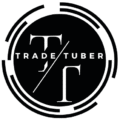Level Up Your Career: Your Guide to Landing Entry-Level Finance Jobs in 2025
So, you’re aiming for “how to get Entry Level Finance Jobs in 2025?” That’s fantastic! The finance industry offers diverse opportunities, from analyzing markets to helping businesses grow. While it can seem competitive, with the right strategy and a proactive approach, you can absolutely land that entry-level role. Think of this as your friendly roadmap to navigating the journey.
Laying the Foundation: Skills and Education that Shine
Before diving into applications, let’s ensure you have a solid base. Here’s what employers typically look for:
Entry Level Finance Jobs With no Experience
“Breaking into finance job with no experience might seem daunting, but it’s certainly achievable. The key lies in strategically highlighting transferable skills gained through academics, extracurricular activities, or personal projects. Emphasizing your strong analytical abilities, quantitative aptitude, and genuine passion for the financial markets, coupled with proactive networking and a willingness to start in entry-level or support roles, can open doors to this dynamic industry. Demonstrating a hunger to learn and a commitment to building a career from the ground up will resonate with employers willing to invest in promising talent.”

- Relevant Education: A bachelor’s degree in finance, economics, accounting, or a related quantitative field is often the standard requirement. Don’t fret if your degree is in something slightly different; highlighting relevant coursework (like statistics, mathematics, or business analysis) and demonstrating a keen interest in finance can still open doors.
- Pro-Tip: If you’re still studying, focus on maintaining a strong GPA and taking finance-related electives.
- Essential Skills: Beyond the degree, certain skills are highly valued:
- Analytical and Problem-Solving Skills: Finance is all about interpreting data and finding solutions. Practice analyzing case studies, working with spreadsheets, and developing your critical thinking abilities.
- Quantitative Aptitude: A comfort level with numbers and mathematical concepts is crucial. Brush up on your algebra, calculus (depending on the role), and statistical analysis.
- Communication Skills: You’ll need to clearly explain complex financial information both verbally and in writing. Practice presenting ideas and crafting professional emails.
- Technical Proficiency: Familiarity with Microsoft Excel is non-negotiable. Knowledge of financial software (like Bloomberg Terminal, FactSet, or specific accounting software) can be a significant advantage.
- Attention to Detail: Accuracy is paramount in finance. Develop a meticulous approach to your work.Consider Certifications: While not always mandatory for entry-level roles, certain certifications can make you stand out. The Bloomberg Market Concepts (BMC) certification is a great way to demonstrate your understanding of financial markets. For more specialized roles down the line, consider looking into the Chartered Financial Analyst (CFA) program, though this is usually pursued after gaining some experience.
Gaining Practical Experience: Beyond the Classroom
Employers love to see that you’ve taken the initiative to apply your knowledge in real-world settings:
- Internships are Gold: Aim for internships in finance-related areas. This could be at investment banks, asset management firms, corporate finance departments, or even smaller financial advisory firms. Internships provide invaluable hands-on experience, networking opportunities, and a taste of the industry.
- Actionable Step: Start your internship search early! Many firms have application deadlines well in advance. Leverage your university’s career services and online job boards.
- Personal Projects: Don’t underestimate the power of personal projects. Manage a virtual stock portfolio, analyze a company’s financial statements, or even participate in investment competitions. These demonstrate your passion and initiative.
- Example: You could create a blog or online portfolio showcasing your investment analyses or market insights.
- Volunteer Work: Volunteering for organizations that handle finances can also provide relevant experience and demonstrate your commitment.
Networking: Building Your Connections
In the finance world (and most industries!), who you know can be just as important as what you know:
- Attend Industry Events: Go to career fairs, industry conferences, and university alumni events. These are great opportunities to meet professionals, learn about different roles, and make connections.
- Pro-Tip: Prepare an “elevator pitch” – a brief and compelling introduction of yourself and your career aspirations.
- Leverage Your University Network: Connect with professors, alumni working in finance, and career services. They can offer valuable advice and potential leads.
- Online Networking: LinkedIn is your ideal friend. Create a professional profile, connect with people in the finance industry, and actively participate in relevant groups. Don’t just connect; engage with their content and reach out for informational interviews.
- Informational Interviews: These are informal conversations where you ask someone about their career path and the industry. It’s a fantastic way to learn and build relationships.
Crafting Your Application: Making a Strong First Impression
Your resume and cover letter are your marketing tools. Make sure they shine:
- Tailor Your Resume: Don’t send a generic resume for every job. Customize it to highlight the skills and experiences most relevant to the specific role you’re applying for. Use keywords from the job description.
- Example: If the job emphasizes financial modeling, ensure your experience with Excel and any relevant modeling projects are prominently featured.
- Write a Compelling Cover Letter: Your cover letter is your chance to tell your story and explain why you’re a great fit for the role and the company. Highlight your passion for finance, relevant skills, and how your experiences align with the job requirements.
- Proofread Meticulously: Errors in your application reflect poorly on your attention to detail – a crucial trait in finance. Proofread everything multiple times!
Go To Homepage
The Interview Process: Showcasing Your Potential
Congratulations, you’ve landed an interview! Now it’s time to impress:
- Research the Company: Thoroughly understand the company’s business, recent performance, and its position in the market.
- Understand the Role: Review the job description carefully and be prepared to discuss how your skills and experiences align with the specific responsibilities.
- Prepare for Common Interview Questions: Expect questions about your interest in finance, your strengths and weaknesses, your experience with specific software, and your problem-solving approach. Be ready to discuss your resume in detail.
- Behavioral Questions: Be prepared for questions that ask you to describe past situations to assess your soft skills (e.g., “Tell me about a time you faced a challenge and how you overcame it”). Use the STAR method (Situation, Task, Action, Result) to structure your answers.
- Technical Questions: Depending on the role, you might face basic technical questions related to finance, accounting, or economics. Brush up on fundamental concepts.
- Ask Thoughtful Questions: At the end of the interview, always have a few well-researched questions to ask the interviewer. This shows your engagement and genuine interest.
Staying Ahead of the Curve: The 2025 Landscape
Keep in mind some trends that might influence entry-level finance jobs in 2025:
- Increased Focus on Data Analytics and Technology: Finance is becoming increasingly data-driven. Having skills in data analysis tools (like Python or R) and an understanding of fintech trends will be a significant advantage.
- Sustainability and ESG (Environmental, Social, and Governance) Factors: Finance is playing a growing role in sustainable investing. Showing an interest in ESG can be a plus.
- Adaptability and Continuous Learning: The financial landscape is constantly evolving. Demonstrate your willingness to learn and adapt to new technologies and market conditions.
Final Thoughts
Breaking into the finance industry takes effort, persistence, and a strategic approach. By focusing on building a strong foundation, gaining practical experience, networking effectively, and crafting compelling applications, you’ll significantly increase your chances of landing an entry-level finance job in 2025. Stay proactive, be enthusiastic, and believe in your potential. Good luck!
